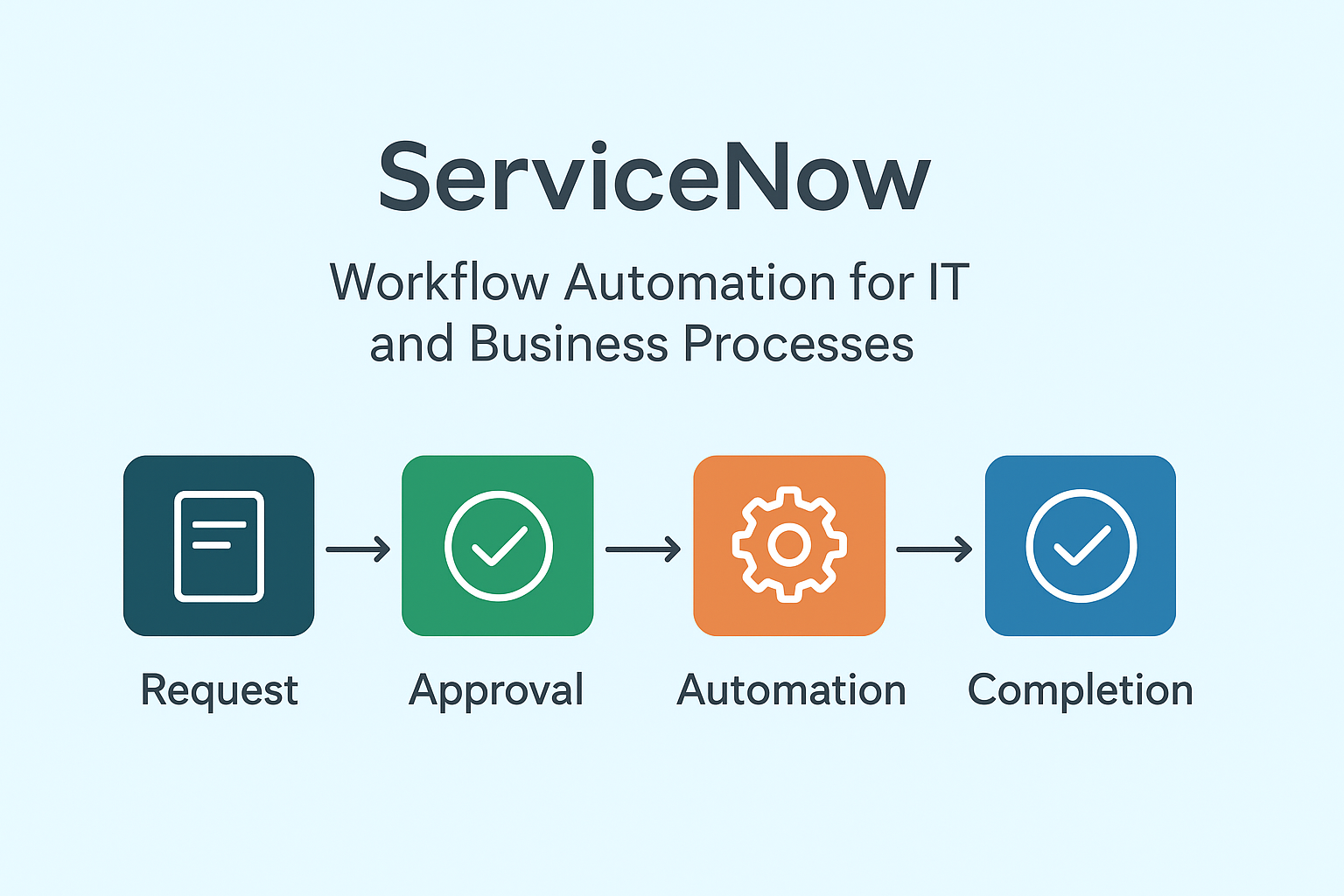🌐 Introduction
The global demand for workflow automation has transformed how organizations operate. ServiceNow stands at the center of this revolution. It is a cloud-based platform that connects IT, HR, finance, and customer service into one digital ecosystem.
Whether you have a technical or non-technical background, ServiceNow offers a clear career path. With the right training and certification, anyone can become part of this fast-growing field.

💡 What Is ServiceNow?
ServiceNow is a digital workflow platform designed to automate and simplify business processes. Originally built for IT service management (ITSM), it has evolved into a complete enterprise solution used by top companies worldwide.
By integrating departments and automating tasks, ServiceNow helps organizations save time, cut costs, and enhance customer experience. As a result, professionals skilled in this platform are in high demand.
👩💻 Why ServiceNow Is Valuable for Both Tech and Non-Tech Professionals
ServiceNow is one of the few platforms that bridges the gap between business operations and IT.
- For tech professionals: Developers, administrators, and system architects can build and manage custom applications on the platform.
- For non-tech professionals: Roles such as process analyst, business analyst, or project coordinator focus on improving workflow efficiency without heavy coding.
Furthermore, ServiceNow provides a structured learning path for both groups, allowing gradual skill growth through certification and practice.
🎯 How to Start Learning ServiceNow
Getting started is easier than most people think.
- Create a free developer account at developer.servicenow.com to explore the sandbox environment.
- Take the Certified System Administrator (CSA) course — this is the foundation for any ServiceNow career.
- Practice building workflows and automations in your developer instance.
- Join the community forums to learn from others and stay updated.
Moreover, you can expand your knowledge through Implementation Specialist or Developer certifications once you master the basics.
💼 Career Growth and Opportunities
ServiceNow careers follow a clear progression path:
- ServiceNow Administrator (entry level)
- Implementation Specialist
- Developer / Consultant
- Architect / Product Owner
Each step offers higher responsibility and salary. Additionally, new roles continue to emerge as companies expand their use of ServiceNow across HR, IT, security, and customer service.
💰 Average Beginner Salary (2026 Estimates)
Salaries vary by country, but ServiceNow roles pay above industry average.
| Region | Average Beginner Salary |
|---|---|
| 🇺🇸 USA | $70,000 – $90,000 per year |
| 🇪🇺 Europe (EU) | €45,000 – €65,000 per year |
| 🇦🇺 Australia | AUD 80,000 – 100,000 per year |
| 🇦🇪 Dubai / UAE | AED 8,000 – 14,000 per month |
These numbers rise significantly after one to two years of experience. In fact, certified professionals often earn 20–30% more than non-certified peers.
📈 Benefits of a ServiceNow Career
A ServiceNow career offers more than just high pay. It provides:
- Job security in a rapidly growing digital sector
- Global recognition across industries
- Remote and hybrid work flexibility
- Continuous learning through new modules and updates
- Diverse roles for both technical and analytical thinkers
Furthermore, ServiceNow’s ecosystem is expanding quickly, meaning professionals who start today will be in high demand for years to come.
🧠 Tips for Success
To succeed in ServiceNow, consistency is key.
- Practice daily in your developer instance
- Join ServiceNow community events to network with experts
- Work on small automation projects to build confidence
- Stay updated with new releases and platform changes
In addition, consider documenting your projects on LinkedIn — employers often value real-world examples more than theory.
❓ Common Questions
Q1: Is coding required to learn ServiceNow?
Not always. Many roles focus on process configuration and workflow design rather than coding.
Q2: Which certification should I start with?
The ServiceNow Certified System Administrator (CSA) certification is the best place to begin.
Q3: How long does it take to learn ServiceNow?
On average, beginners reach a job-ready level in 3–6 months with regular practice.
Q4: What industries use ServiceNow?
Almost every industry — including banking, healthcare, telecom, and government — now uses ServiceNow for automation and service management.
🏁 Conclusion
In today’s digital era, ServiceNow has become more than a platform — it is a career accelerator. Both tech and non-tech professionals can build rewarding futures by learning its tools, gaining certification, and applying their skills to real business challenges.
If you want to future-proof your career, start your ServiceNow journey today.

